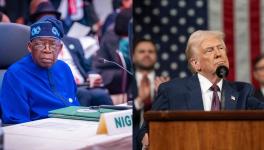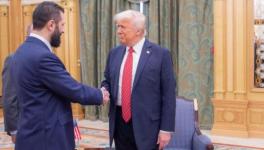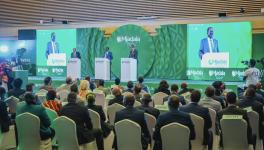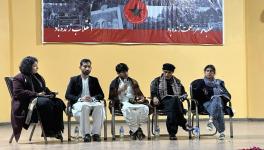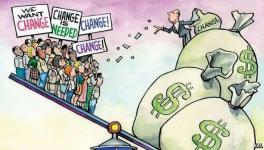Civil Society Calls for ‘World Without World Bank’ Protest and Media Campaign
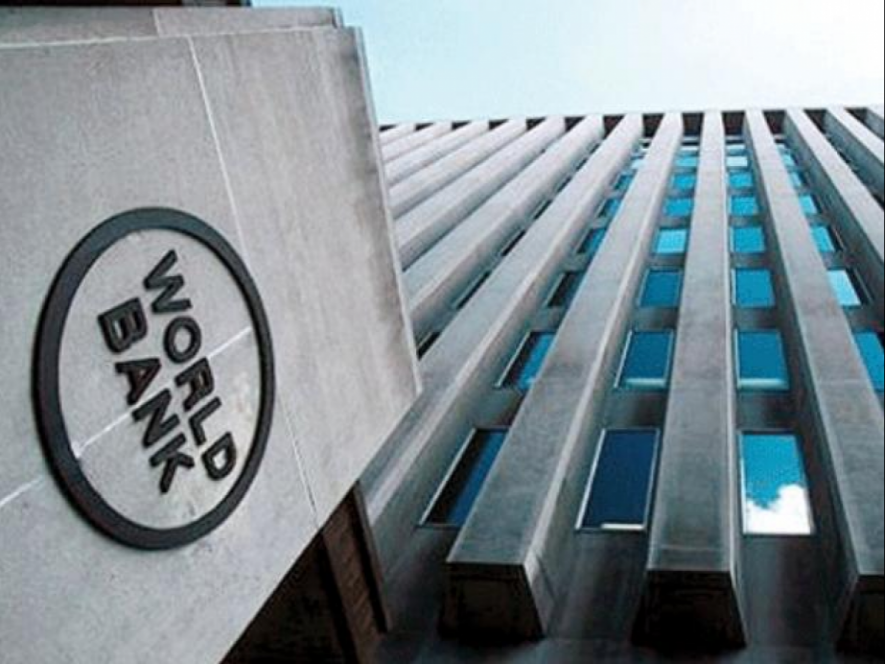
A group of Indian civil society groups have called for a united protest and media campaign ‘World Without World Bank – Action Week India’ from October 12-16, to “expose” the World Bank’s hidden agenda to push neo-liberalisation amid the ongoing annual meetings of the International Monetary Fund (IMF) and the Board of Governors of the World Bank Group.
In a press release on the protest call, the Working Group on International Finance Institutions (WGonIFIs), one of the organisers of the campaign against the Multilateral Development Bank, has stated that the World Bank continues to grow its influence in India through state partnerships impacting local governance structures.
“They (World Bank and IMF) pursue new and what seem to be more lucrative territories promoting privatisation and commodification of data, coastal regions, large renewables, large infrastructure, agriculture, health, etc. with little regard to impacts on communities, their rights over resources and to human rights. With the approach of maximising finance for development, there is a deeper connection of Development Finance Institutions with private financial entities making funding more complex and difficult to trace. These institutions despite claims of responsible funding and poverty alleviation continue to operate with lack of accountability and transparency,” stated WGonIFIs.
The protest aims to highlight the impact of World Bank funding in various sectors in India, including health, agriculture, infrastructure, energy, labour, environment and on the Bank’s agenda of neoliberal policy reforms.
“COVID-19 has provided the Bank a window to reinvent its relevance through support to countries in fighting the pandemic. This support is coming through development policy loans which are silently pushing for policy reforms,” said the press release.
On Tuesday, WGonIFIs and Centre for Financial Accountability organised an online meeting titled ‘COVID19 and IMF - World Bank : Did the Reform Agenda get a Booster?’ as part of the protest.
Speaking in the online meeting, Nezir Sinani, Co-Director of Recourse, a non-profit organisation monitoring international finance based in the Netherlands, claimed that IMF was planning to make $250 billion fund available for COVID response through government budget support to developing countries and the World Bank group was planning to deliver up to $160 billion in financing capacity through June 2021.
“A review of IMF’s latest policy reform agendas contained in Article IV consultation reports for India, Indonesia, the Philippines, Mozambique and South Africa contradicts their own advice on green stimulus and getting the energy price right,” said Sinani.
While IMF’s Article IV reports provide important insights into their current priorities on macroeconomic risks and the recommended policy reforms shaping national budgets, tax policy, investment incentives, financial sector regulations and prioritised infrastructure, Sinani explains that “it fails to recognise the scale of climate change-related macroeconomic risks, especially related to the energy transition, and thus policy advice continues to embed or ignore government subsidies and other investment incentives for fossil fuels, including coal.”
Another speaker, Anuradha Munshi of Centre for Financial Accountability based in New Delhi, said IMF and World Bank funding for COVID response to developing countries was being done through conditionalities that are pushing their old agendas related to disaster capitalism.
Munshi said that World Bank’s commitment of about $2.5 billion support towards emergency COVID-19 response in India including its $1 billion Social Protection Response Programme imposes conditionalities that encourage private players and weaken the public health care system.
Supporting the ‘World Without World Bank’ campaign, Medha Patkar of Narmada Bachao Aandolan said: “World Bank has started sectoral funding which is to influence sectoral reforms in sovereign countries including India. The Bank has taken a policy making role by imposing conditionalities through funding that has been affecting the vulnerable sections of people such as farmers and labourers.” She added that the Narmada struggle had exposed the World Bank’s pre financing agreement in the Narmada Project which failed to address the communities and ecological concerns.
Over decades, India has witnessed multiple protests against World Bank lending towards Narmada dam, Singrauli power projects, the Tata Mundra project, Vishnugad Pipalkoti and Allain Duhangan hydro projects, Mumbai Urban Transport Project, and against its push for the privatisation of health, water and power sectors.
Get the latest reports & analysis with people's perspective on Protests, movements & deep analytical videos, discussions of the current affairs in your Telegram app. Subscribe to NewsClick's Telegram channel & get Real-Time updates on stories, as they get published on our website.










